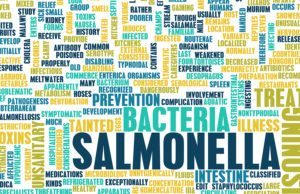Why Food Poisoning is So Dangerous for Seniors
You’ve probably heard that many common illnesses that are not so dangerous for average adults are extremely serious for seniors. Food poisoning affects millions of people across the United States every year, but it is particularly dangerous for children and elderly adults. Because their immune system is not as robust as it once was, elders have a more difficult time fighting off the bacterial invasion of their bodies.
As a family caregiver, you must take precautions to ensure that your elderly loved one stays safe from bacterial food poisoning.

Elder Care Upper Darby PA – Why Food Poisoning is So Dangerous for Seniors
How Does Bacterial Food Poisoning Happen?
When bad bacteria enter the body it is met with resistance from the immune system. When the bacteria overwhelm the system, it can lead to serious bacterial infections and numerous health complications. Salmonella bacteria and listeria monocytogenes are two of the most common bacteria that trigger food poisoning.
Salmonella is spread through food that has been contaminated by human or animal waste in the soil or from handling without washing hands. Eggs, dairy, meat and poultry are the most common foods that affect people. Listeria monocytogenes thrives in food that has been undercooked or left out at an unsafe temperature. The most common foods to carry listeria include meats, cheeses, milk and vegetables.
How Does Bacterial Food Poisoning Harm Seniors?
Food poisoning causes a violent reaction in the body with symptoms like diarrhea, nausea, vomiting, fever, chills and cramps. In elderly people, there is a greater risk of serious symptoms from the salmonella and listeria food poisonings. Besides convulsions, headaches, confusion and loss of balance, seniors can experience significant health complications. For example, listeria can cause bacterial meningitis when targets the central nervous system. Salmonella infections can settle in the heart or in the membranes of the brain or spinal cord.
Preventing Bacterial Food Poisoning in Elders
Everyone that provides care to your elderly relative needs to take precautions on how they prepare food, serve it and store it. This includes family members, friends, elder care aides and even elder care volunteers. When food is not stored at its proper hot or cold temperature, it enters a danger zone of between 40 degrees F and 140 degrees F. This range is ideal for bacteria to survive and thrive. Food needs to be thoroughly cooked and never served raw or near raw.
Everyone needs to wash their hands, especially after the restroom, because lots of bacteria are transmitted via human or animal feces. It’s important to wash fruits and vegetables well because they can be contaminated via the soil or via handling from farm to table. Family caregivers and elder care aides need to keep the prep area clean and never cross contaminate. This means using a knife or spoon or cutting board for high risk foods like raw meat or poultry and then using it for cutting fruits or vegetables.
With a little effort and a lot of education and awareness, you and your family members as well as elder care aides can help your aging relative avoid the debilitating effects of bacterial food poisoning.
Source: https://www.fda.gov/Food/FoodborneIllnessContaminants/PeopleAtRisk/ucm312705.html
If you or an aging loved one are considering Elder Care Services in Upper Darby PA, please contact the caring staff at True Direct Home Health Care today.
- How Home Health Providers Offer Education Amidst Physical Health Changes - March 5, 2024
- Spring Activities for Seniors - February 21, 2024
- How to Help an Older Loved One with Cataracts? - February 6, 2024
